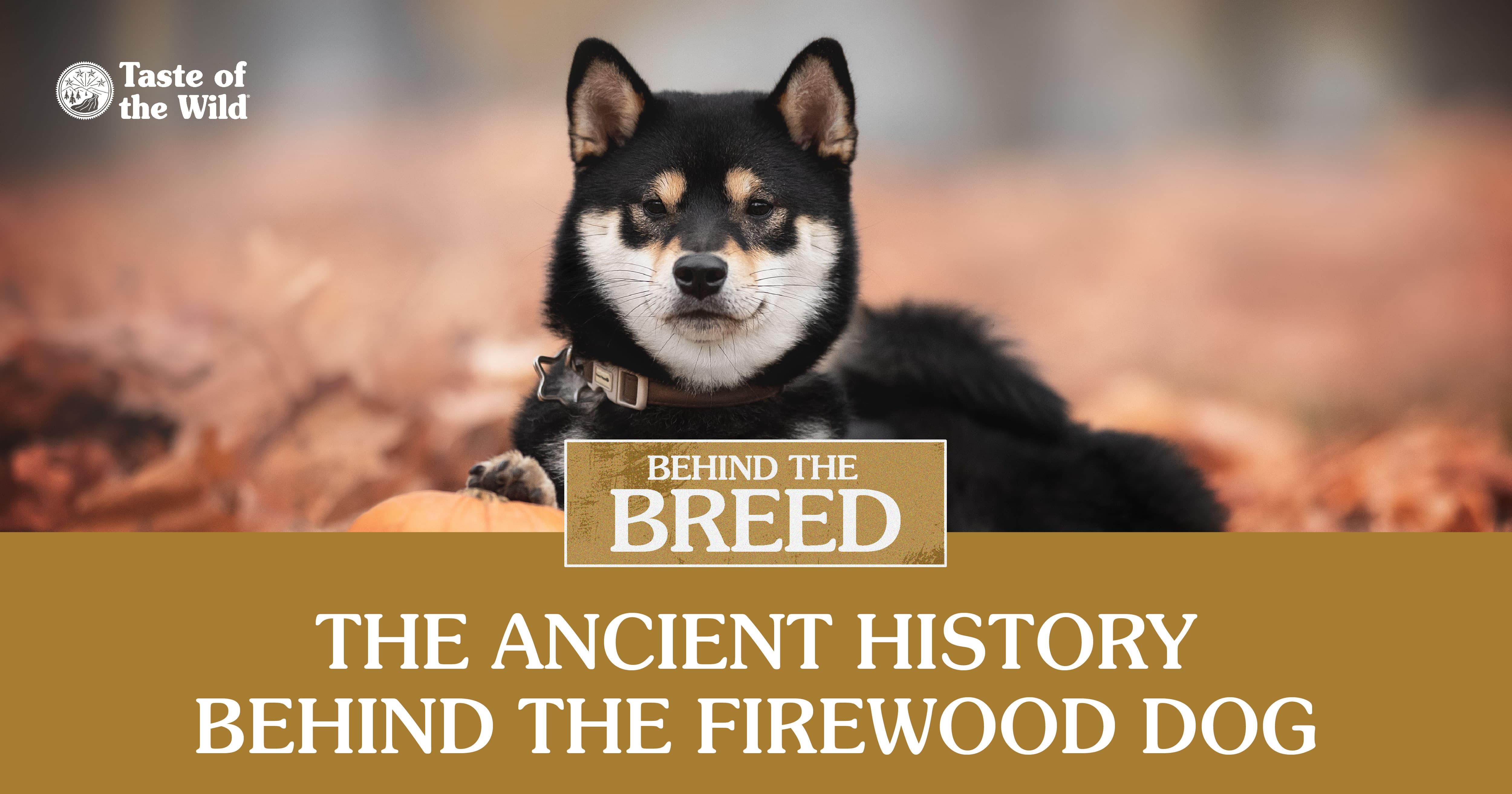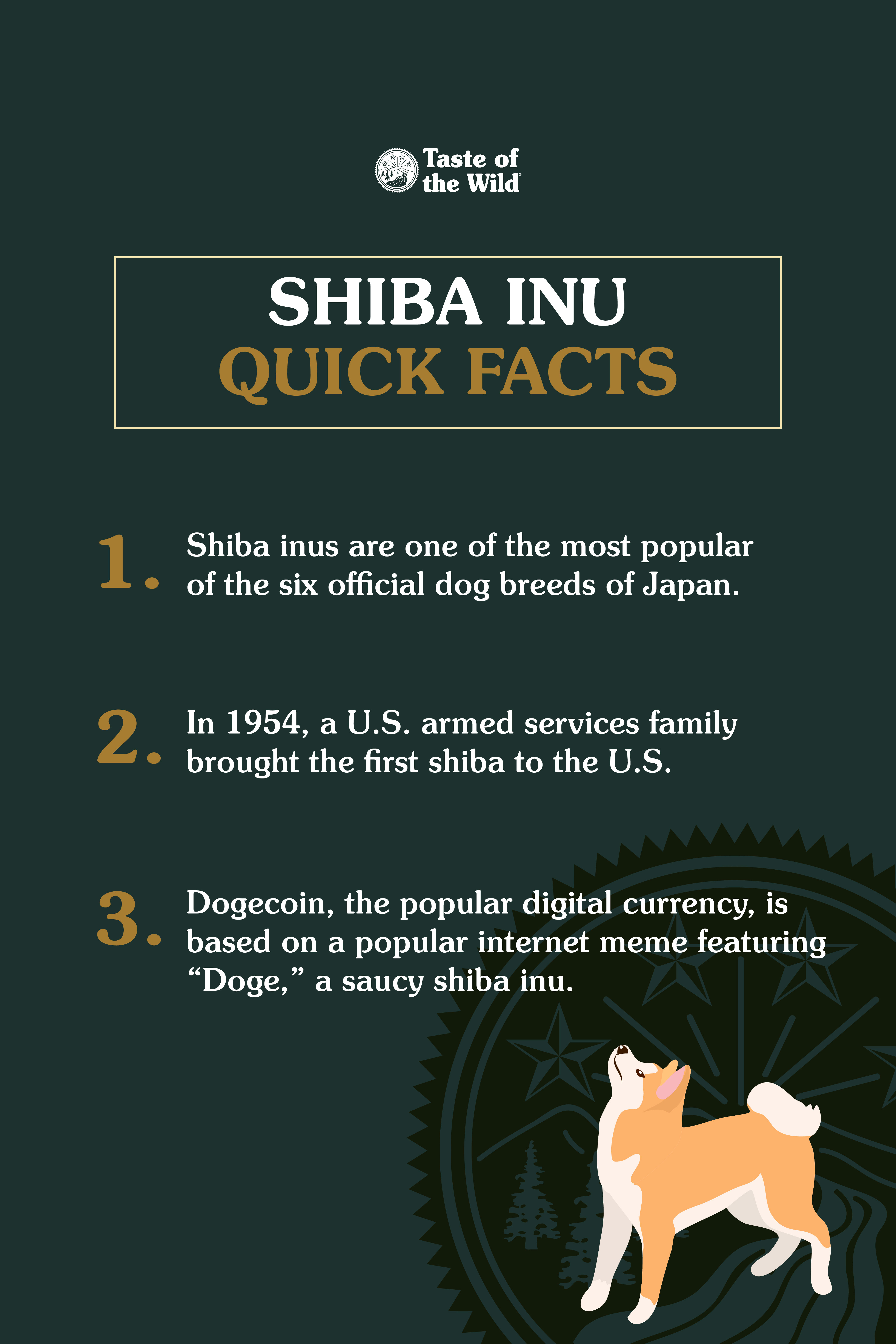
The shiba inu is an ancient Japanese breed that was originally bred to hunt both small and large game, but they have become one of the country’s most popular companion animals. Brought to America from Japan only 60 years ago, shibas are good-natured and compact dogs that are often described as more like a cat than a dog.
Shibas are classified as a “basal” breed, which means they predate modern breeds that originated mostly in the 19th century. In fact, researchers have traced the breed’s origins to 7,000 B.C. Archaeologists have even found remains of shiba-like dogs in ancient sites associated with the Jomon people who lived in the Japanese archipelago from 14,000 B.C.
Before World War II, there were three common types of shiba inu: Minos, Sanins and Shunshus. But the breed almost went extinct due to the war, when many died in bombing raids or from distemper, which became incredibly common in the following years. Now, two types of shibas, the Mino and Sanin, are very rare. All surviving shibas, however, were bred from one of the three distinct bloodlines.
Firewood Dogs
“Shiba” means brushwood, while “inu” means dog, so their name literally translates to “firewood dog,” likely due to the fact that many are the color of fire kindling. Compact and muscular, male shibas measure 14 to 16 inches at the withers, while females measure 13 to 15 inches. Shibas are double coated and the outer coat, which is stiff and straight, covers a very thick and soft undercoat that is prone to shedding. They can come in black and tan, cream, red or red sesame colors and usually have white markings.
Shiba Inus Aren’t for Beginners
Their foxlike features give them a quizzical and approachable look, but they are known for their aloofness — even with their owners! It’s important for owners to set boundaries with shibas as they can have dominant personalities. This is why they are not recommended for first-time dog owners.
Overall, shibas are a healthy breed and will give their experienced owners many years of companionship.

RELATED POST: Behind the Breed: Dachshund
The information in this blog has been developed with our veterinarian and is designed to help educate pet parents. If you have questions or concerns about your pet's health or nutrition, please talk with your veterinarian.
